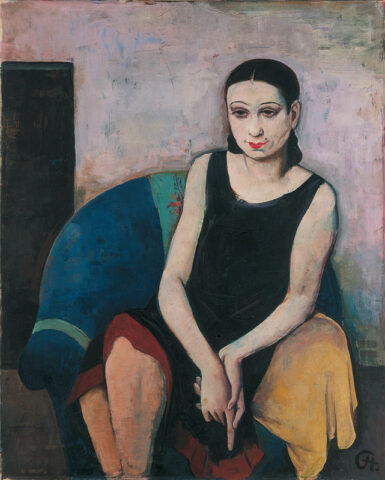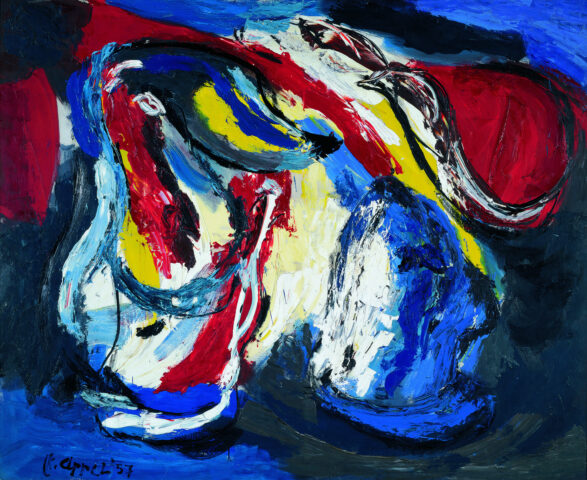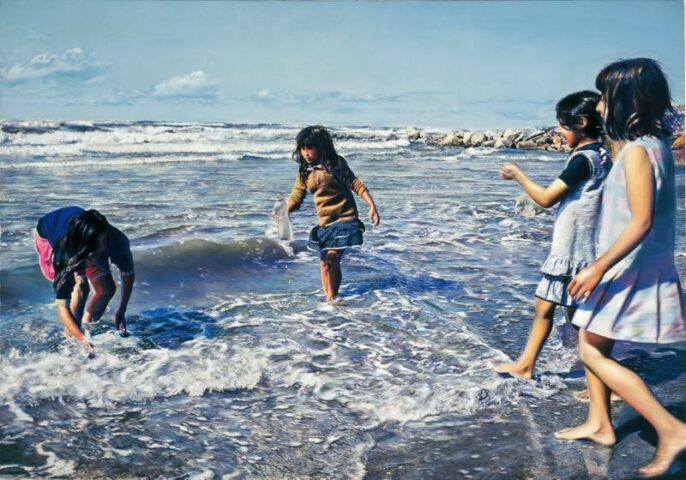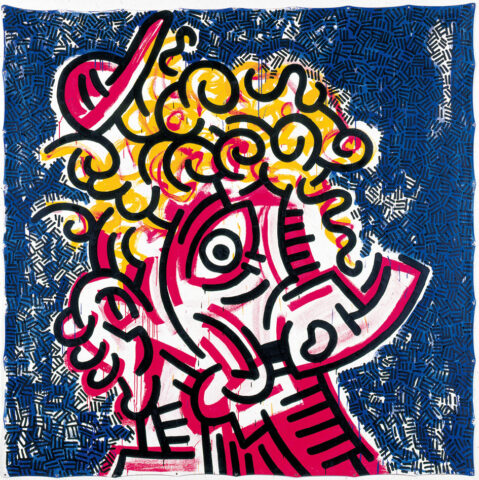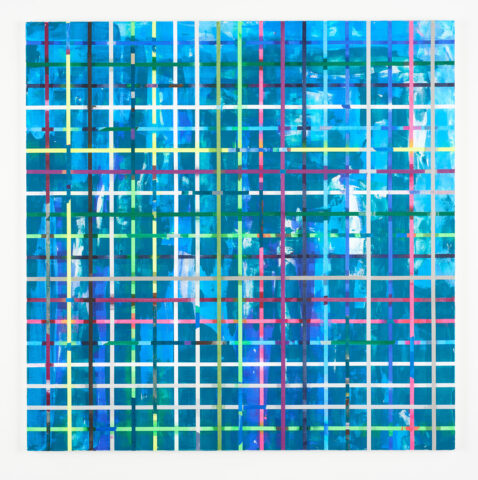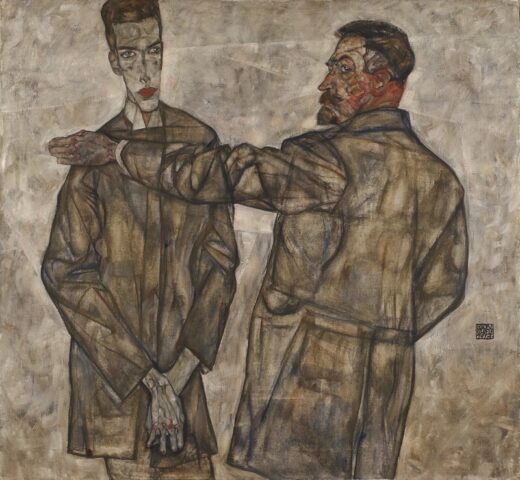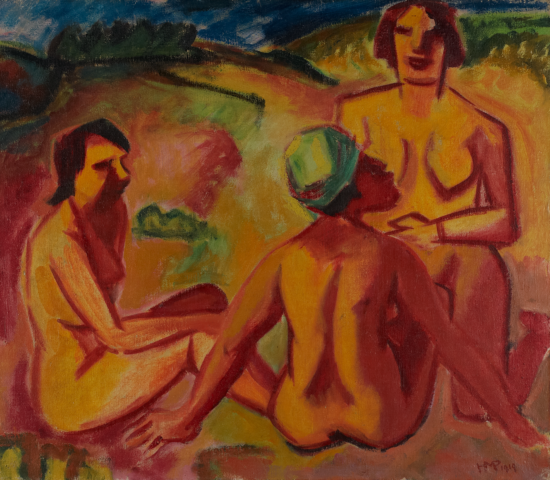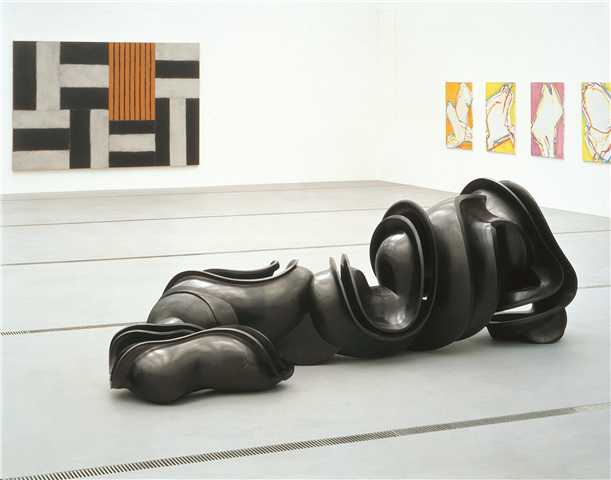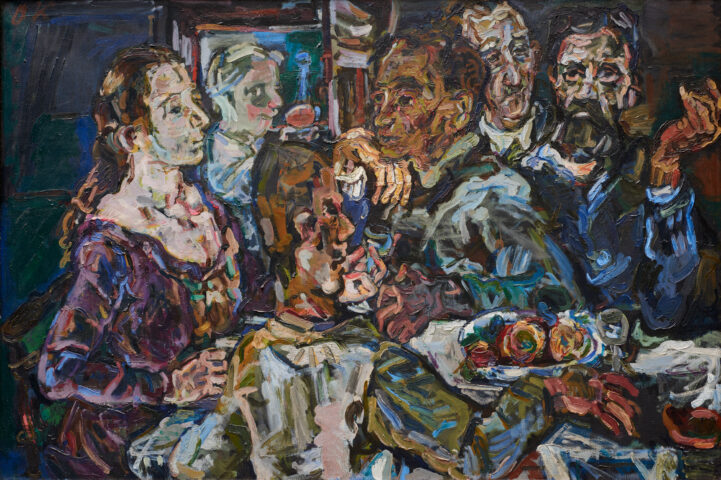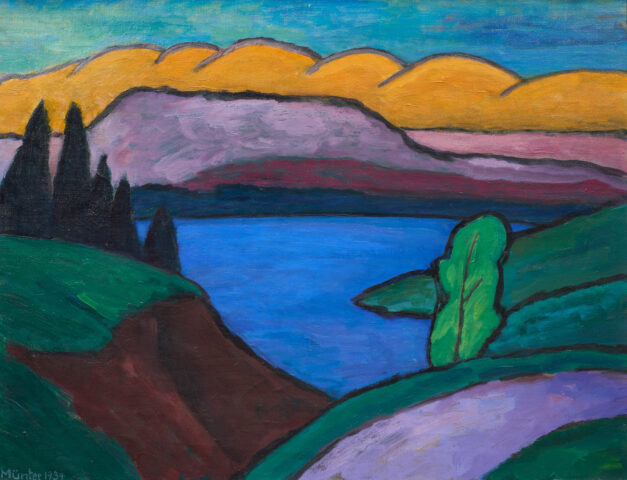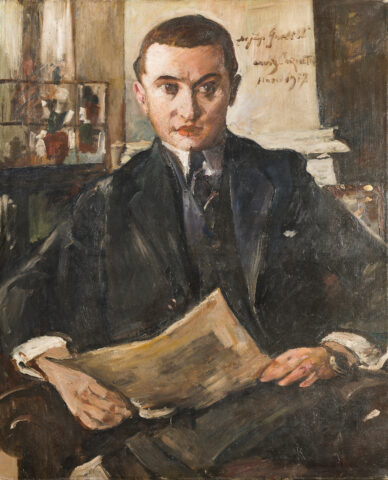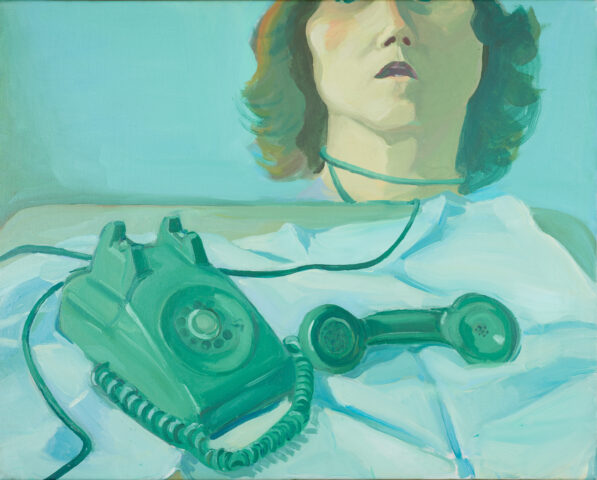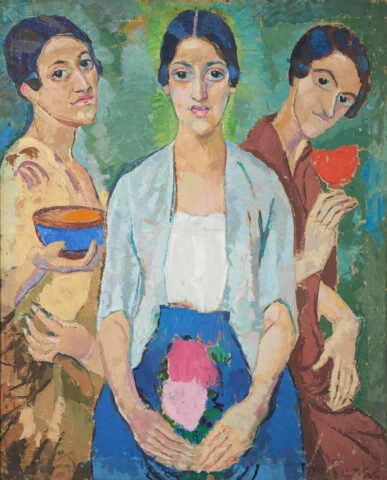Collection
The Lentos Kunstmuseum Linz, which opened in 2003, is considered one of the most important museums of modern and contemporary art in Austria. Starting from the collection holdings, which focus on masterpieces of European painting from the first half of the 20th century and a rich collection of graphic art and high quality photography, Lentos draws an arch from the classical historical art of the early 20th century to the most current art positions of today.
Building on the collection of the Berlin art dealer Wolfgang Gurlitt (1888 – 1965), the holdings have been richly expanded since 1953. The Collection consists of roughly 1,700 works of painting, sculpture and object art and over 13,500 works on paper, including 1,300 photographs. Special highlights include collection segments by Herbert Bayer, VALIE EXPORT, and Haus-Rucker-Co, which hold a strong connection to Linz and Upper Austria.
In 2024, Linz entrepreneur Erwin Hauser donated his nearly 3,000-piece art collection to the City of Linz and the Lentos. Over the past 25 years, he had meticulously curated this collection with a keen eye. The Hauser Collection is among Austria’s most significant private collections, featuring works by approximately 700 Austrian artists from the 19th century to the present.
Our collection database allows you to explore the treasures of the Lentos from the comfort of your home and gain a comprehensive insight into our art collection.
uvm.
Provenance research in Linz’s municipal museums
The City of Linz has been in the forefront for several decades among Austrian regional authorities in analyzing the history of the Nazi era in a number of initiatives, such as research projects, publications and exhibitions. On the basis of the Kunstrückgabegesetz, the Art Restitution Law passed in 1998, Austria’s federal museums have subjected their holdings to a rigorous examination to identify works of art looted by the Nazis. Linz has likewise engaged in a systematic and thorough scrutiny of the holdings of its museums.
The systematic scrutiny of the holdings of the LENTOS and/or of its predecessor institution, the Neue Galerie der Stadt Linz, has been going on since 1998. In 1999, the City of Linz published a first comprehensive report compiled by the head of the City Archives, Dr. Walter Schuster, on the Sammlung Gurlitt, the Gurlitt Collection, which originally formed the core of the Museum’s holdings.
A working group for provenance research was established by the mayor and the city’s chief executive director in 2007 to focus the process. The group is assisted by the internationally acknowledged expert in provenance research in the context of museums and public institutions, Dr Vanessa-Maria Voigt (Germany), and headed by the LENTOS’s artistic director, Stella Rollig. Its chief focus, in addition to more topical provenance queries, is systematic research into the provenance of works acquired by the City of Linz from the Gurlitt Collection.
Works under investigation and restitutions carried out
On the basis of the group’s research work and of external expert opinions the following works of art were restituted, in each case following an appropriate decision by the Linz City Council:
1999: Lesser Ury, Die Näherin [The seamstress] (Inv. no. 138)
to the heirs of a Berlin collection
2003: Egon Schiele, Stadt am Fluss [Town on the river] (Inv. no. 13)
to the heirs of Daisy Hellmann
2009: Gustav Klimt, Damenbildnis [Portrait of a lady] (Inv. no. 149)
to the heirs of Aranka Munk
2011: Wilhelm Trübner, Bildnis Carl Schuh [Portrait of Carl Schuh] (Inv. no. 104)
Consensual settlement with the heirs of Harry Fuld
2012: 6 paintings by Anton Romako: Mädchen mit aufgestütztem Arm (Tochter des Künstlers), 1875, Inv. no. 10; Der Zweikampf (Kämpfende Ritter), Inv. no. 81; Zigeunerlager, 1879 (?), Inv. no. 83; Mädchen mit Früchten, um 1875, Inv. no. 103; Ungarische Puszta (Strohschober in Bálványos), about1880, Inv. no. 104; Bildnis Karl Schwach, 1854, Inv. no. 145
to the heirs of Oskar und Malvine Reichel
Thanks to the generous courtesy of the owner these works remain on permanent loan at the Lentos where they can be showcased furthermore.
2015: Lovis Corinth, Othello (Der Mohr), 1894, (Inv. Nr. 23) and Lovis Corinth, Schwabing (Blick aus dem Atelierfenster), 1891, (Inv. Nr. 24)
to the heirs of Jean and Ida Baer
2015: Emil Nolde, Maiwiese (Maienwiese) [Meadow in May], 1915, (Inv. Nr. 94) to the heirs of Dr. Otto Siegfried Julius
Contact
The Lentos is determined to do everything to make the provenance of its holdings as transparent as possible. We are grateful for all pertinent information, particularly from scholars working in a provenance related area. If you have any queries concerning individual objects or any information that may throw additional light on any object, please contact
Lentos Kunstmuseum Linz
Provenienzforschung
Ernst-Koref-Promenade 1
4020 Linz
AUSTRIA
or write to provenienzforschung@lentos.at
VALIE EXPORT Center
Using the VALIE EXPORT Archive as a basis, the City of Linz and its partner institute, the University of Arts and Industrial Design Linz, have agreed to operate an international research center, the VALIE EXPORT Center. Forschungszentrum für Medien- und Performancekunst. The distribution of tasks for the VALIE EXPORT Center provides for the City of Linz to pay the costs of the infrastructure, while the University of Arts pays for research. The City of Linz and/or the LENTOS Kunstmuseum’s main responsibility is to provide the required spatial resources and all the materials in the VALIE EXPORT Archive, while the University of Arts defray all expenses arising from providing the required academic and administrative staff. The VALIE EXPORT Center Linz appraises, studies, contextualises and mediates the premature legacy of VALIE EXPORT. International in its orientation, the research center strives to promote the artistic and scientific exploration of media and performance arts.
The VALIE EXPORT Archive, acquired from the City of Linz, comprises works of art, documents and drafts of works from all the different phases of the artist’s career. Materials include, among other things, project sketches, conceptual outlines, an extensive photo, film and video archive, correspondence, publicity material (posters, folders, etc.), press cuttings (reviews, press reports, etc.), a book collection and originals from a number of different work groups.
VALIE EXPORT Center Linz
Tabakfabrik Linz, Bau 1, 1.OG
Peter-Behrens-Platz 9
4020 Linz
office@valieexportcenter.at
www.valieexportcenter.at
forum metall
In 1977 Linz dropped an “artistic bomshell” that resonated far beyond Austria’s borders: forum metall presented large-scale metal sculptures by internationally renowned contemporary artists in the Donaupark. The opening of the presentation coincided with that of the Fourth Bruckner Festival.
Three years after the completion of Linz’s flagship concert hall, the Brucknerhaus, forum metall marked another important stage in the city’s development from a location of industry to a city of culture. On 12 September 1977 the city’s first open-air museum opened in the Donaupark, offering the first truly representative overview of abstract sculpture of the 1960s and 1970s. At the same time forum metall offered comprehensive insights into the possibilities iron, steel and aluminium held in store for sculptors.
The conception, organisation and artistic direction lay in the hands of Helmuth Gsöllpointner, then Dean of the University of Art and Industrial Design Linz and professor of the Metal Master Class, and of Peter Baum, then Director of the Neue Galerie der Stadt Linz (today’s LENTOS). One of the aims pursued by the organisers of forum metall was to leave the trodden paths of conventional exhibitions and strike out in an altogether new direction. At the same time, the choice of metal as a material for artists to work with underlined its importance for Linz, the “steel city”. The perfect interplay between art and the economy made it possible to realise this outstanding open-air ensemble of contemporary art.
The media echo surrounding forum metall exceeded all expectations. No exhibition in Austria in the field of modern art had ever called forth comparable interest both on the part of the media and the public. In this way, forum metall succeeded spectacularly in focusing international attention on its status of an emerging metropolis of art.
The Lentos is in charge of the maintenance of the artworks. As part of Linz’s year as Capital of Culture Linz09 the Linz AG had a lighting system installed for the sculptures.
Reproduction Requests
Upon request, Lentos will be happy to provide printable image data of works and objects from the collection. Please provide us with as much information as possible about the original and the intended use of the reproduction. Since the processing and creation of image data can take a long time in some cases, we also ask that you contact us in time.
A processing fee and a usage fee are payable for the provision of image material. The usage fee is identical for print and electronic media and is waived for scientific purposes.
| Category | Description | Price |
|---|---|---|
| Processing fee per repro | €100.00 | |
| Usage fee per image1 | €50.00 |
- no fee for scientific and non-commercial purposes
Contact:
